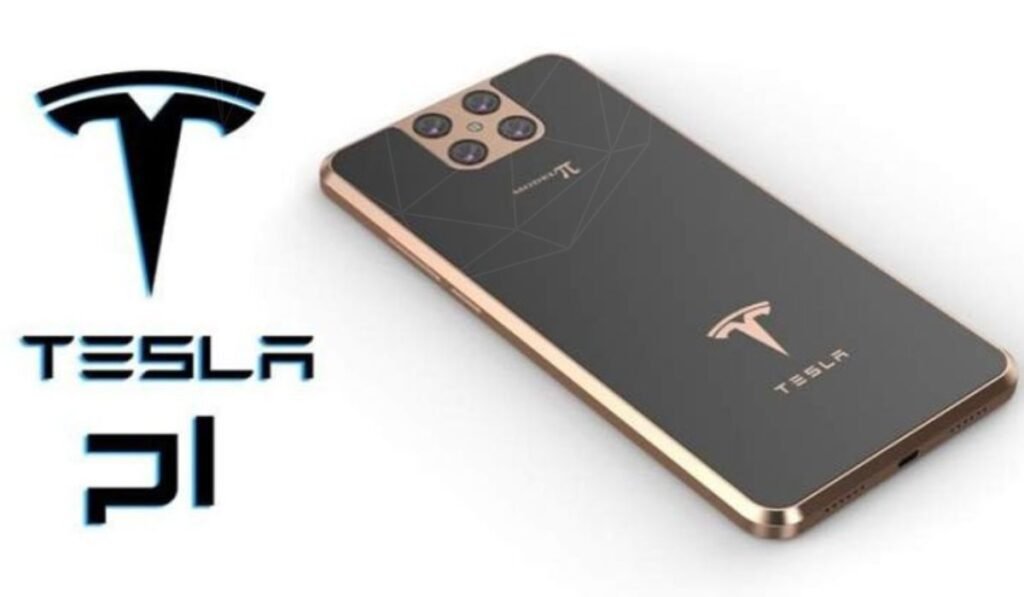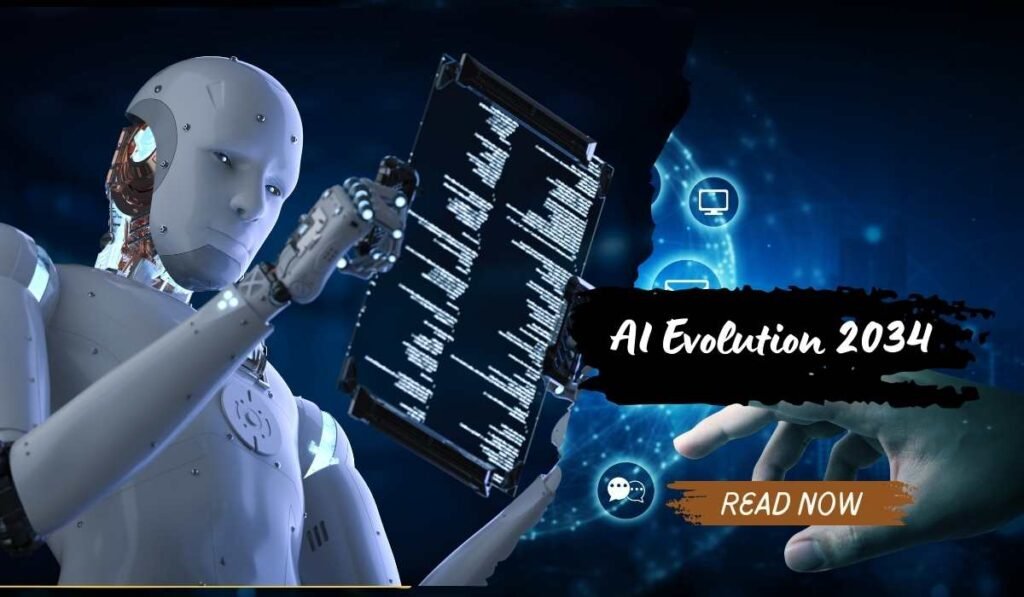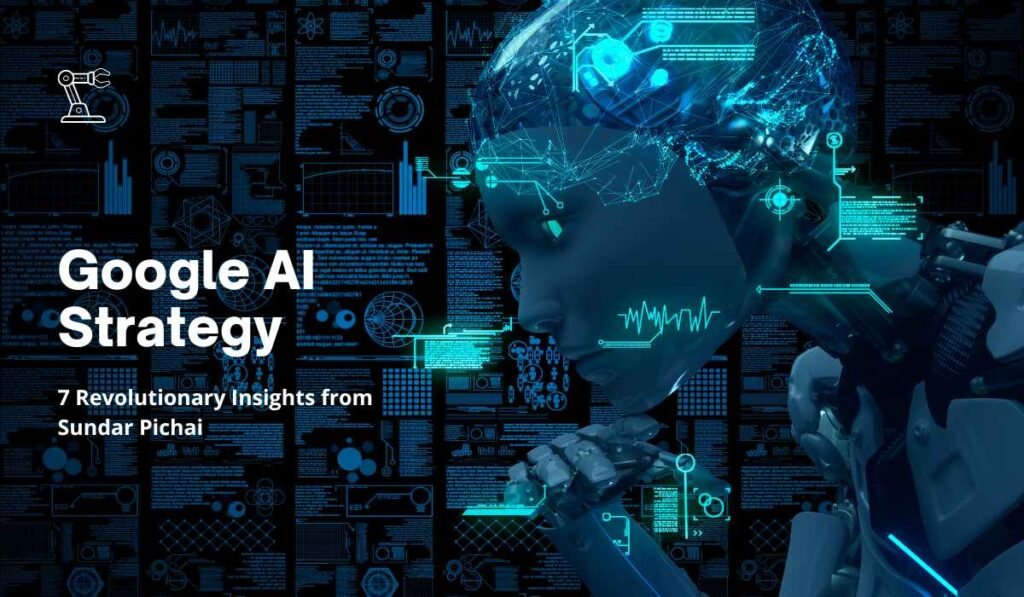In the ever-evolving landscape of smartphone technology, a new contender is poised to challenge the reigning champion. Tesla, the company renowned for revolutionizing the automotive industry, is reportedly developing its own smartphone: the Tesla Pi Phone. This bold move has sent shockwaves through the tech world, sparking intense speculation and excitement among enthusiasts and industry watchers alike. But how does this newcomer stack up against the iconic Apple iPhone? Let’s embark on an in-depth exploration of this titanic clash, examining every facet of these devices to envision the future of smartphones.
The Rise of a New Challenger
Tesla has made a name for itself by pushing the boundaries of technology in the automotive world. Now, with the rumored Tesla Pi Phone, the company is set to bring its innovative approach to the smartphone market. This move has sparked intense speculation and excitement among tech enthusiasts and Tesla fans alike.
Elon Musk, Tesla’s enigmatic CEO, has expressed his frustration with Apple’s dominance in the smartphone market, stating, “It’s weird that we’re so trapped in this wonderful Apple bubble.” This sentiment seems to be the driving force behind Tesla’s venture into the smartphone arena, with Musk hinting at the integration of advanced AI at the OS level of the Pi Phone.
Brand Power: Tesla vs Apple
When it comes to brand power, few companies can match the allure of Apple. Since its launch in 2007, the iPhone has been a symbol of innovation, quality, and luxury. With each iteration, Apple has managed to keep its audience hooked by delivering incremental improvements, refined designs, and powerful software updates.
On the other hand, Tesla, led by visionary entrepreneur Elon Musk, is a name synonymous with innovation and disruption. Known primarily for its electric vehicles, Tesla has revolutionized the automotive industry with its advanced battery technology, autonomous driving capabilities, and a relentless focus on sustainability.
| Brand Aspect | Apple iPhone | Tesla Pi Phone |
|---|---|---|
| Established Reputation | Strong presence in smartphone market since 2007 | New entrant, backed by Tesla’s innovative reputation |
| Brand Loyalty | High customer loyalty and retention | Strong following in automotive sector, potential crossover appeal |
| Innovation Perception | Known for refining and perfecting existing technologies | Perceived as a disruptor and pioneer in new technologies |
| Ecosystem | Comprehensive ecosystem of devices and services | Potential for integration with Tesla vehicles and energy products |
Design and Aesthetics
iPhone: A Legacy of Elegance
The iPhone is known for its minimalist design, premium materials, and meticulous attention to detail. The latest iPhone models feature a sleek, flat-edged design reminiscent of the iconic iPhone 4, but with modern enhancements like ceramic shield, surgical-grade stainless steel, and aerospace-grade aluminum. The device is slim, lightweight, and comfortable to hold with a gorgeous Retina display that offers crisp colors and deep blacks.
Tesla Pi Phone: Futuristic Vision
The Tesla Pi Phone is rumored to take design to a whole new level. Early leaks suggest a phone with a seamless body, made from materials like titanium or even graphene. These materials are not only incredibly strong but also lightweight and environmentally friendly.
The Pie Phone may feature a completely bezel-less and notch-less display, using under-display camera technology to eliminate the need for a visible front camera. In terms of color options, the Pie Phone is rumored to offer a unique finish that changes color based on the angle of light, using advanced nano-coating technology.
| Design Aspect | Apple iPhone | Tesla Pi Phone |
|---|---|---|
| Materials | Ceramic shield, stainless steel, aluminum | Rumored titanium or graphene body |
| Display | Notched display with Face ID sensors | Potential bezel-less, notch-less display |
| Color Options | Range of classic and vibrant colors | Rumored color-changing nano-coating |
| Overall Aesthetic | Refined and familiar | Futuristic and unique |
Display Technology
iPhone: Proven Excellence
The latest iPhones come with Super Retina XDR displays featuring OLED technology for rich colors, deep blacks, and high contrast ratios. Apple’s displays are known for their exceptional color accuracy, HDR support, and smooth performance with ProMotion technology, which offers a 120Hz refresh rate for fluid scrolling and responsive touch input.
Tesla Pi Phone: Pushing Boundaries
The Tesla Pi Phone is rumored to feature a quantum dot OLED display, a next-generation technology that promises even better color accuracy, brightness, and energy efficiency. This would make the Pie Phone’s display not only more vibrant but also more power-efficient, potentially extending battery life significantly.
Additionally, the Pie Phone might introduce an always-on display feature that uses minimal power while showing essential information like time, notifications, and battery status.
| Display Feature | Apple iPhone | Tesla Pi Phone |
|---|---|---|
| Technology | Super Retina XDR OLED | Rumored Quantum Dot OLED |
| Refresh Rate | 120Hz ProMotion | Potentially higher refresh rate |
| Always-On Display | Limited implementation | Rumored full implementation |
| Color Accuracy | Industry-leading | Potentially superior with Quantum Dot technology |
Performance and Processing Power
iPhone: A Benchmark for Speed
Powered by the custom-designed A-series chips, the latest iPhones boast unparalleled processing power and graphics capabilities. The A15 Bionic chip, for example, features a 6-core CPU, a 5-core GPU, and a 16-core neural engine, providing lightning-fast performance and advanced machine learning capabilities.
Tesla Pi Phone: AI-Driven Powerhouse
Tesla’s expertise in developing custom chips for its vehicles, such as the Full Self-Driving (FSD) computer, could translate into a powerful processor for the Pie Phone. The device might incorporate a custom chip designed specifically for mobile use, potentially called the Tesla Neural Processor (TNP).
This chip could be optimized for AI and machine learning tasks, offering groundbreaking performance in areas like voice recognition, real-time language translation, and augmented reality applications.
| Performance Aspect | Apple iPhone | Tesla Pi Phone |
|---|---|---|
| Processor | Custom A-series chip (e.g., A15 Bionic) | Rumored Tesla Neural Processor (TNP) |
| AI Capabilities | 16-core Neural Engine | Potentially more advanced AI processing |
| Graphics | Powerful integrated GPU | Rumored advanced graphics capabilities |
| Cooling System | Standard smartphone cooling | Potential enhanced cooling for sustained performance |
Battery Life and Charging
iPhone: All-Day Performance
Apple’s latest iPhones are equipped with high-capacity batteries that offer all-day battery life, but they still require frequent charging, especially with heavy use. Apple’s MagSafe technology allows for convenient wireless charging, but it’s not the fastest on the market.
Tesla Pi Phone: Revolutionary Power
Tesla, a leader in battery technology, is expected to equip the Pie Phone with a next-generation lithium-ion or even a lithium-sulfur battery, offering higher energy density and longer life cycles. This could translate into significantly longer battery life, allowing users to go days without needing to recharge.
Moreover, the Pie Phone might support ultra-fast charging, leveraging Tesla’s advancements in supercharger technology. The device could potentially charge from 0 to 100% in just 10-15 minutes, a game-changer for users who are always on the go.
| Battery Feature | Apple iPhone | Tesla Pi Phone |
|---|---|---|
| Battery Technology | Lithium-ion | Rumored advanced lithium-ion or lithium-sulfur |
| Charging Speed | Fast charging, MagSafe wireless | Potential ultra-fast charging |
| Battery Life | All-day battery life | Rumored multi-day battery life |
| Solar Charging | Not available | Potential integrated solar charging capability |
Camera Technology
iPhone: Computational Photography Master
Apple’s iPhones are known for their exceptional camera quality, with advanced computational photography features like Deep Fusion, Night Mode, and Smart HDR. The latest iPhones come equipped with a triple camera system including ultra-wide, wide, and telephoto lenses, enabling stunning photos and videos in all lighting conditions.
Tesla Pi Phone: AI-Enhanced Imaging
The Tesla Pi Phone is rumored to feature a completely new approach to smartphone photography. Leveraging Tesla’s expertise in optics and AI, the Pie Phone might come with a quad-camera system that includes a periscope telephoto lens for superior zoom capabilities, an ultra-wide lens, a macro lens for close-up shots, and a primary sensor that could rival professional cameras.
What sets the Pie Phone apart is its rumored AI-driven camera software, which uses machine learning to automatically enhance images in real-time. This could mean better low-light performance, sharper details, and more accurate colors without the need for extensive post-processing.
| Camera Feature | Apple iPhone | Tesla Pi Phone |
|---|---|---|
| Camera System | Triple camera (Ultra-wide, Wide, Telephoto) | Rumored quad-camera system |
| AI Enhancement | Deep Fusion, Smart HDR | Potential advanced real-time AI enhancements |
| Video Capabilities | 4K HDR with Dolby Vision | Rumored 8K video with advanced stabilization |
| Special Features | Night mode, Portrait mode | Potential AR integration, advanced object recognition |
Operating System and Software
iPhone: The Polished iOS Experience
Apple’s iOS is known for its smooth performance, intuitive interface, and robust security features. It offers a seamless experience across all Apple devices, with regular updates that provide new features and security enhancements. The App Store boasts millions of apps, from productivity tools to entertainment and everything in between.
Tesla Pi Phone: A New OS Contender
The Tesla Pi Phone is expected to run on a new proprietary operating system, potentially called Tesla OS. This operating system would likely be built from the ground up, optimized for performance, security, and seamless integration with other Tesla products.
Tesla OS could introduce new features that go beyond what iOS currently offers. For example, Tesla’s experience with autonomous driving could lead to advanced voice-activated controls, allowing users to interact with their devices without touching the screen.
| OS Feature | Apple iOS | Tesla OS |
|---|---|---|
| User Interface | Polished, familiar | Potentially revolutionary, AI-driven |
| App Ecosystem | Extensive App Store | Potential for specialized Tesla-centric apps |
| Updates | Regular security and feature updates | Likely frequent updates leveraging Tesla’s OTA experience |
| Voice Control | Siri | Potential advanced AI assistant |
Ecosystem Integration
iPhone: A Unified Apple Experience
Apple’s biggest strength is its ecosystem. The iPhone seamlessly integrates with other Apple devices like the MacBook, iPad, Apple Watch, and Apple TV, creating a unified experience that’s hard to beat. iCloud ensures that your data is synced across all your devices, while services like Apple Music, Apple Pay, and Apple Arcade provide added value for users.
Tesla Pi Phone: Beyond Smartphones
Tesla is building an ecosystem of its own, and the Pie Phone could be the centerpiece of that ecosystem. The Pie Phone could serve as the ultimate remote control for Tesla vehicles, offering features like remote start, climate control, and even autonomous summon capabilities.
Additionally, the Pie Phone could integrate with Tesla’s solar products, allowing users to monitor and manage their home’s energy usage directly from their smartphone. And let’s not forget about SpaceX’s Starlink. By incorporating Starlink connectivity into the Pie Phone, Tesla could offer a level of global internet access that no other smartphone can match.
| Ecosystem Aspect | Apple iPhone | Tesla Pi Phone |
|---|---|---|
| Device Integration | Seamless with Apple devices | Potential integration with Tesla vehicles and energy products |
| Cloud Services | iCloud | Potential Tesla-specific cloud solution |
| Internet Connectivity | Standard cellular and Wi-Fi | Potential Starlink satellite integration |
| Smart Home | HomeKit integration | Possible integration with Tesla energy ecosystem |
Security and Privacy
iPhone: A Fortress of User Data
Apple has always prioritized user privacy and security with features like Face ID, end-to-end encryption, and strict App Store policies. The company’s commitment to protecting user data has been a key selling point, especially in an age where privacy concerns are on the rise.
Tesla Pi Phone: Next-Level Protection
Tesla could leverage its expertise in cybersecurity gained from protecting its vehicles against hacking attempts to create a smartphone that is virtually impenetrable to cyber threats. The Pie Phone could feature advanced biometric authentication methods, such as an under-display fingerprint scanner and facial recognition powered by AI.
Furthermore, Tesla’s focus on decentralization, as seen with SpaceX’s Starlink, could lead to new approaches in data privacy. Imagine a device that stores your data locally, using edge computing to process information without sending it to centralized servers.
| Security Feature | Apple iPhone | Tesla Pi Phone |
|---|---|---|
| Biometric Authentication | Face ID | Potential advanced AI-driven biometrics |
| Data Encryption | End-to-end encryption | Possible blockchain-based encryption |
| App Security | Strict App Store policies | Potential AI-driven threat detection |
| Privacy Controls | Granular app permissions | Rumored advanced privacy settings |
Pricing and Availability
Apple’s iPhones are known for their premium pricing, with flagship models often costing upwards of $1,000. While this pricing strategy has been successful for Apple, it has also left room for competitors to offer more affordable alternatives.
Tesla’s Pie Phone, however, could follow a different approach. Tesla has a track record of offering competitive pricing for its products, balancing high quality with affordability. The Pie Phone could be priced strategically to undercut the iPhone, making it an attractive option for users who want premium features without breaking the bank.
| Pricing Aspect | Apple iPhone | Tesla Pi Phone |
|---|---|---|
| Price Range | $699 – $1,399 | Speculated to be competitively priced |
| Availability | Wide global availability | Initially limited, expanding over time |
| Purchase Options | Carrier contracts, Apple Store | Potential direct sales, Tesla showrooms |
| Trade-in Program | Apple Trade In | Possible Tesla-specific trade-in options |
AI Integration and Smart Features
Artificial intelligence has become a key differentiator in the smartphone market, enabling smarter features, enhanced user experiences, and more efficient performance. Apple has made significant strides in AI with its A-Series chips, particularly the neural engine, which powers everything from facial recognition and computational photography to machine learning tasks like predictive text and Siri.
Tesla, however, is at the forefront of AI research and development, particularly in the automotive sector. The Pie Phone could leverage this AI experience in several innovative ways, potentially featuring a more intuitive and capable personal assistant than Siri, named TeslaBot.
| AI Feature | Apple iPhone | Tesla Pi Phone |
|---|---|---|
| Virtual Assistant | Siri | Rumored TeslaBot |
| On-Device AI | Neural Engine | Potential Tesla Neural Processor |
| Predictive Features | Suggested apps, predictive text | Possible advanced behavioral prediction |
| AI-Enhanced Photography | Computational photography | Rumored real-time scene optimization |
Augmented Reality and Virtual Reality
Apple has invested heavily in ARKit to provide developers with tools to create immersive AR experiences for the iPhone. The iPhone’s LiDAR scanner has already made significant strides in improving AR capabilities, enabling better depth perception and object detection.
Tesla’s entry into the smartphone market with the Pie Phone could further push the envelope of AR and VR. Given Tesla’s expertise in AI and machine learning, the Pie Phone might feature advanced AR capabilities that seamlessly blend digital and physical worlds.
| AR/VR Aspect | Apple iPhone | Tesla Pi Phone |
|---|---|---|
| AR Framework | ARKit | Potential proprietary AR platform |
| Hardware | LiDAR scanner on Pro models | Rumored advanced depth-sensing technology |
| VR Support | Limited | Potential dedicated VR accessory |
| Use Cases | Gaming, navigation, education | Possible integration with Tesla vehicle HUDs |
The Pie Phone could support VR through a dedicated accessory, potentially a lightweight VR headset that connects wirelessly to the device. This would allow users to explore virtual worlds, play immersive games, or even attend virtual meetings in a fully 3D environment.
Given Elon Musk’s interest in neural interfaces, as seen with his company Neuralink, it’s not far-fetched to imagine that Tesla could develop next-level AR and VR experiences that are more immersive and intuitive than ever before.
Connectivity and Networking
Connectivity is another critical factor that sets smartphones apart. Apple’s iPhone has consistently offered robust connectivity options, including support for 5G, Wi-Fi 6, Bluetooth 5.0, and NFC. These technologies ensure fast data speeds, low latency connections, and compatibility with a wide range of accessories and services.
Tesla’s Pie Phone, however, could bring something entirely new to the table. Imagine a smartphone that connects directly to SpaceX’s Starlink satellite network. This would mean that the Pie Phone could offer global internet coverage even in remote areas where traditional cellular networks are unavailable.
| Connectivity Feature | Apple iPhone | Tesla Pi Phone |
|---|---|---|
| Cellular | 5G | 5G + potential Starlink integration |
| Wi-Fi | Wi-Fi 6 | Potential Wi-Fi 6E or newer standard |
| Bluetooth | Bluetooth 5.0 | Possible advanced Bluetooth standard |
| Satellite Connectivity | Emergency SOS via satellite | Rumored full Starlink integration |
This Starlink connectivity could be a game-changer for many users, particularly those who travel frequently or live in areas with limited internet access. It could also be a major selling point for the Pie Phone, differentiating it from the iPhone and other smartphones that rely solely on terrestrial networks.
Sustainability and Environmental Impact
Sustainability has become an increasingly important consideration for consumers when choosing products, and Apple has been a leader in this area. The company has committed to becoming carbon neutral across its entire supply chain and products by 2030, and it has made significant strides in using recycled materials, renewable energy, and reducing waste.
Tesla, too, has a strong focus on sustainability with its mission to accelerate the world’s transition to sustainable energy. The Pie Phone could reflect this commitment by being one of the most environmentally friendly smartphones on the market.
| Sustainability Aspect | Apple iPhone | Tesla Pi Phone |
|---|---|---|
| Materials | Increasing use of recycled materials | Potential use of sustainable or biodegradable materials |
| Energy Efficiency | Energy-efficient chips and software | Possible solar charging capabilities |
| Longevity | Software updates for 5+ years | Potential modular design for easy repairs and upgrades |
| Recycling Program | Apple Trade In and recycling program | Possible Tesla-specific recycling initiative |
Tesla could leverage its expertise in solar technology to offer innovative charging solutions. Imagine a Pie Phone that comes with a solar-powered charging case, allowing you to charge your phone using renewable energy wherever you are. This would be a perfect match for Tesla’s ethos and would appeal to environmentally conscious consumers.
User Experience and Personalization
Apple has always emphasized a consistent and streamlined user experience, with iOS offering a familiar and intuitive interface that’s easy to navigate. This consistency extends across all of Apple’s products, creating a cohesive ecosystem where everything just works together seamlessly.
The Tesla Pi Phone, on the other hand, could offer a more personalized and dynamic user experience. With Tesla OS, the Pie Phone might allow for deeper customization options, letting users tailor the interface to their preferences.
| UX Feature | Apple iPhone | Tesla Pi Phone |
|---|---|---|
| Interface Customization | Limited | Potentially highly customizable |
| AI-driven Personalization | Some Siri suggestions | Possible deep AI integration for personalized experience |
| Gesture Controls | Swipe-based navigation | Potential advanced gesture or even thought-based controls |
| Accessibility | Comprehensive accessibility features | Possible AI-enhanced accessibility options |
Imagine an AI-driven operating system that learns from your usage patterns and adapts its layout, notifications, and shortcuts to better match your habits and needs. Tesla could also introduce new ways of interacting with the phone, such as a gesture-based control system similar to Tesla’s cars, where certain actions could be performed with a simple wave of the hand or a specific gesture on the phone’s surface.
Innovation in Voice and Sound Technology
Apple has made significant improvements in sound technology over the years, with the iPhone now featuring stereo speakers, spatial audio, and support for high-fidelity audio playback. The iPhone’s microphones are also among the best in the business, offering clear and crisp sound quality for calls, recordings, and voice commands.
However, Tesla could push the boundaries even further with the Pie Phone’s sound capabilities. Given Tesla’s work with sound design in its vehicles, the Pie Phone could feature an advanced audio system designed to deliver an immersive listening experience.
| Audio Feature | Apple iPhone | Tesla Pi Phone |
|---|---|---|
| Speaker System | Stereo speakers | Potential advanced multi-speaker array |
| Audio Technology | Spatial Audio | Possible Tesla-developed 3D audio technology |
| Microphone | Multiple high-quality mics | Rumored advanced noise-cancelling array |
| Voice Recognition | Siri with on-device processing | Potential advanced AI-driven voice recognition |
Tesla could also innovate in the area of voice recognition. With its deep learning and AI capabilities, the Pie Phone could feature a voice assistant that is more accurate, responsive, and capable than anything currently on the market. This assistant could understand natural language commands with greater precision, learn from your usage patterns, and even recognize different voices for personalized responses.
Potential Drawbacks and Challenges
While the Tesla Pi Phone presents many exciting possibilities, it’s important to consider the potential challenges and drawbacks. One of the biggest hurdles Tesla will face is breaking into an established market dominated by giants like Apple and Samsung. The smartphone market is highly competitive, and gaining a significant share will require not just innovative features, but also a compelling value proposition that convinces users to switch from their current devices.
| Challenge | Apple iPhone | Tesla Pi Phone |
|---|---|---|
| Market Penetration | Established market leader | New entrant, needs to build market share |
| App Ecosystem | Robust App Store | Needs to build a new app ecosystem |
| Brand Loyalty | Strong existing customer base | Must convince users to switch |
| Manufacturing Scale | Established supply chain | Needs to set up new manufacturing processes |
Moreover, Tesla will need to ensure that the Pie Phone software is polished and user-friendly from day one. Developing a new operating system from scratch is no small feat, and any bugs or usability issues could deter potential customers. Apple has had years to refine iOS, and Tesla will need to work hard to offer an equally smooth and reliable experience.
There are also potential concerns about privacy and data security. Tesla will need to reassure users that their data is safe and protected, especially given the increased scrutiny around tech companies and data practices. Building trust in this area will be crucial for the Pie Phone’s success.
The Road Ahead
As we await more concrete details about the Tesla Pi Phone, one thing is clear: its entry into the smartphone market is set to shake up the industry. Whether through revolutionary features or a fresh approach to smartphone design, Tesla has the potential to significantly impact how we think about and use our mobile devices.
The battle between the Tesla Pi Phone and the iPhone promises to be fierce, driving both companies to innovate in ways that will ultimately benefit consumers. We can expect to see advancements in areas such as:
- AI integration and smart features
- Battery technology and charging speeds
- Augmented and virtual reality capabilities
- Sustainable and eco-friendly design
- Advanced connectivity options, including satellite internet
- Innovative user interfaces and control methods
As tech enthusiasts, we can’t wait to see what the future holds for smartphone technology. The competition between these two tech giants will likely spur a new wave of innovation, pushing the boundaries of what we thought possible in a handheld device.
In conclusion, while the iPhone has long been the gold standard in the smartphone industry, the rumored Tesla Pi Phone has the potential to be a game-changer. With Tesla’s track record of disrupting established industries and its focus on cutting-edge technology, the Pie Phone could introduce features and capabilities that redefine our expectations of what a smartphone can do.
However, it’s important to remember that at this stage, much of what we’ve discussed about the Tesla Pi Phone is based on rumors, speculation, and extrapolation from Tesla’s known technological capabilities. The actual device, when and if it is released, may differ significantly from these predictions.
Regardless of the outcome, the mere prospect of Tesla entering the smartphone market is exciting news for tech enthusiasts and consumers alike. It promises to inject fresh competition and innovation into an industry that has, in recent years, been characterized by incremental improvements rather than revolutionary leaps.
As we look to the future, one thing is certain: the smartphone landscape is set for some intriguing developments. Whether you’re an Apple fan, a Tesla enthusiast, or simply someone who appreciates technological innovation, the next few years in the smartphone industry are sure to be fascinating.
What are your thoughts on the potential Tesla Pi Phone? Do you think it has what it takes to challenge the iPhone’s dominance? What features would you most like to see in a Tesla-made smartphone? Share your opinions and predictions in the comments below!
The Tesla Pi Phone is a rumored smartphone being developed by Tesla, aimed at challenging the dominance of established players like Apple in the smartphone market.
The iPhone features a minimalist design with premium materials like ceramic shield and stainless steel, while the Tesla Pi Phone is rumored to have a futuristic design using materials like titanium or graphene, potentially featuring a bezel-less display.
The Tesla Pi Phone is rumored to feature a quantum dot OLED display, which promises improved color accuracy and energy efficiency, along with an always-on display feature.
The Tesla Pi Phone could utilize next-generation lithium-ion or lithium-sulfur batteries, potentially offering multi-day battery life and ultra-fast charging capabilities.
The Tesla Pi Phone is speculated to include a quad-camera system enhanced by AI, featuring a periscope telephoto lens, ultra-wide and macro lenses, and advanced real-time image processing.
The iPhone runs on iOS, known for its polished and intuitive interface, while the Tesla Pi Phone is expected to run on a new proprietary OS, potentially called Tesla OS, optimized for integration with Tesla products and enhanced AI features.
The Tesla Pi Phone could serve as a central hub for Tesla vehicles and energy products, offering features like remote control for vehicles and integration with Tesla's solar solutions, contrasting with the iPhone's seamless integration with other Apple devices.
The Tesla Pi Phone may incorporate advanced biometric authentication methods, possibly using AI-driven facial recognition and under-display fingerprint technology, alongside strong data encryption measures.
While the iPhone's premium models often range from $699 to $1,399, the Tesla Pi Phone is speculated to be competitively priced to attract users seeking premium features without the high cost.
The Tesla Pi Phone could leverage Tesla's expertise in AI to provide a more advanced virtual assistant, possibly named TeslaBot, and could feature deep AI integration for personalized user experiences.





